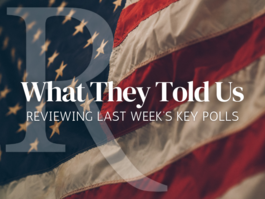US and Ukraine, Goals in Conflict
A Commentary By Patrick J. Buchanan
Among the nations aiding Ukraine in its resistance to the Russian invasion, America has been foremost. Yet the war interests of our two nations are not identical.
To the U.S., the imperative is that the war be contained, not expanded, and that we not be drawn into a wider war with Russia.
For the independence, territorial integrity and democratic rule of Ukraine, while championed by the U.S., are not vital U.S. interests. None of them justifies a war with Russia that could imperil the security and, if it escalated to nuclear weapons, the very survival of our country.
That America is not "all in" in Ukraine is obvious. Before Feb. 24, the U.S. never brought Ukraine into NATO, never gave it an "Article 5" war guarantee, never agreed to fight alongside it if attacked.
From the first February days of this war, we ruled out U.S. "boots on the ground" or U.S. participation in a "no-fly zone," which would require U.S. pilots to shoot down Russian planes.
These decisions and declarations about what we would not do testified to the limits of the U.S. commitment to Ukraine, as well as to our reluctance to take serious risks to ourselves on Kyiv's behalf.
President Volodymyr Zelenskyy's goal, however, the defeat of the Russian invaders and their expulsion from Ukraine, would require greater support from the U.S. and NATO than he is receiving or is likely to receive.
The U.S. and NATO are willing to supply Ukraine with the weapons to defend themselves and defeat the Russians in battle, but neither NATO nor the U.S. is prepared to fight the Ukrainians' war for them.
When it comes to the fighting and dying, this is their war, not ours.
To shame NATO and the U.S. more fully and openly into his war, Zelenskyy is accusing reluctant Western nations of being appeasers cut from the same bolt of cloth as Neville Chamberlain at Munich.
What is Zelenskyy saying?
Our cause is Europe's cause. Our cause is NATO's cause. Our cause is democracy's cause. Our cause is the world's cause. If we go down, we will be only the first to fall to Vladimir Putin's empire. Others will follow.
Henry Kissinger has said that, in any negotiated settlement, Ukraine will likely have to cede some territory to Russia. Ideally, said Kissinger, "the dividing line should be a return to the status quo" before the 2022 invasion. Russia has held Crimea and parts of Luhansk and Donetsk since 2014.
"Pursuing the war beyond that point would not be about the freedom of Ukraine," said Kissinger, "but a new war against Russia itself."
A livid Zelenskyy replied: "It seems that Mr. Kissinger's calendar is not 2022, but 1938 ... Nobody heard from him then that it was necessary to adapt to the Nazis instead of fleeing them or fighting them."
These cracks in the coalition backing Ukraine are certain to become more pronounced, as Russia appears to be consolidating control of the Donbas, which Putin has set as his principal goal.
Italy, France and Germany are all in contact with Putin. All are pressing for negotiations. None has insisted on what Zelenskyy has at times demanded: Russia's surrender of Ukrainian territory it has held since 2014.
East European nations, familiar with Russian rule, echo Zelenskyy in calling for the defeat, humiliation and expulsion of Russia from Ukraine.
When and if a ceasefire comes and negotiations begin, there seems certain to be a fracturing of the coalition backing Ukraine.
For while Russia was defeated in its offensives to capture Kyiv, Kharkiv and Odessa, Moscow has succeeded in capturing Mariupol, the Sea of Azov and the "land bridge" it sought from Russia to Crimea -- and appears to be moving toward dominance of the entire Donbas.
Ukraine is also blockaded by Russian warships from exporting its wheat and corn, upon which a number of developing nations depend to feed their populations and avert malnutrition and even famine.
And with Russia making slow but steady gains in the Donbas, Putin does not appear to be holding a weak hand in any negotiations.
With the Ukrainians and Russians exchanging artillery fire in the Donbas, Zelenskyy asked the U.S. for its High Mobility Artillery Rocket Systems, known as HIMARS.
With strike capabilities of almost 50 miles, this could put Russia itself in range. But U.S. officials say they have assurances from Ukrainian leaders that HIMARS will not be used against Russian territory.
The Kremlin has warned that any nation sending advanced weapons to Ukraine will face harsh repercussions. Russian Foreign Minister Sergei Lavrov has charged the West with declaring "total war" on Russia.
What this suggests is that the war is now generating greater risks and dangers for the U.S. than any additional rewards we might realize from "weakening" Russia with further fighting.
It may be time to tell Zelenskyy not only what we will and will not provide but what we believe are the acceptable terms for a truce.
Patrick J. Buchanan is the author of "Nixon's White House Wars: The Battles That Made and Broke a President and Divided America Forever." To find out more about Patrick Buchanan and read features by other Creators writers and cartoonists, visit the Creators website at www.creators.com.
COPYRIGHT 2022 CREATORS.COM
See Other Political Commentaries.
See Other Commentaries by Patrick J. Buchanan.
Views expressed in this column are those of the author, not those of Rasmussen Reports. Comments about this content should be directed to the author or syndicate.
Rasmussen Reports is a media company specializing in the collection, publication and distribution of public opinion information.
We conduct public opinion polls on a variety of topics to inform our audience on events in the news and other topics of interest. To ensure editorial control and independence, we pay for the polls ourselves and generate revenue through the sale of subscriptions, sponsorships, and advertising. Nightly polling on politics, business and lifestyle topics provides the content to update the Rasmussen Reports web site many times each day. If it's in the news, it's in our polls. Additionally, the data drives a daily update newsletter and various media outlets across the country.
Some information, including the Rasmussen Reports daily Presidential Tracking Poll and commentaries are available for free to the general public. Subscriptions are available for $4.95 a month or 34.95 a year that provide subscribers with exclusive access to more than 20 stories per week on upcoming elections, consumer confidence, and issues that affect us all. For those who are really into the numbers, Platinum Members can review demographic crosstabs and a full history of our data.
To learn more about our methodology, click here.



